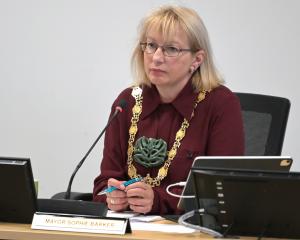"Breathtaking." That is the synopsis by its director of the latest findings by the Dunedin Multidisciplinary Health and Development Study about the true nature of the demand on our social services. The findings show a mere 20% of the study’s subjects accounted for about 80% of the economic debt across the healthcare, criminal justice and social welfare sectors.
The results are certainly stark, and confirm what many working at the coalface will have long suspected. But further information gained reiterates the value of the unit’s research, and offers real hope, too. For the positive news is that tests on the brains of 3-year-olds can reveal who is likely to become part of this "high-cost" minority of adults to use the biggest share of social services.
The study used government data about benefits, criminal convictions and health services and analysed it alongside the detailed information gathered by the Dunedin Study through the years. Thus it was discovered that those who had scored poorly in neurological evaluations and tests of verbal comprehension, language development, motor skills and social behaviour as 3-year-olds were likely to take the lion’s share of social services as adults.
The study also revealed individuals in the high-cost group were likely to have grown up in more socioeconomically deprived environments, were more likely to have grown up fatherless, experienced child maltreatment, scored poorly on childhood IQ tests and exhibited low childhood self-control than others in the group.
The influence of early childhood experiences on adult behaviour and outcomes has long been clear, but the ability to identify and test for proven indicators is a potential game-changer for society. The findings clearly show the importance of early intervention, not the ambulance-at-the-bottom-of-the-cliff approach.
It is extremely hopeful, then, that the country’s new Prime Minister, Bill English, is focused on "social investment" and is already saying positive things about helping vulnerable children and tackling inequality. A genuinely caring approach — combined with some meaningful tools to help do the job — is welcome then. It certainly could not be more timely.
The release on Tuesday of the 2016 Child Poverty Monitor shows little change in the numbers: 28% of children aged up to 17 (295,000 children) live in households earning less than 60% of the median income, 8% (or 90,000 children) live in severe poverty.
Only in October the United Nations’ Committee on the Rights of the Child issued a stark message (in its fifth periodic report on New Zealand), saying "urgent measures" were required to address violence, child abuse and neglect, to improve state care and juvenile justice and to target child labour and the standard of living for children, and disparate outcomes for minority groups and Maori and Pasifika children.
The committee was "deeply concerned about the enduring high prevalence of poverty among children" and wanted a ‘‘national definition’’ of poverty and a "systemic approach" to the issue. We were reminded of our obligations under the UN’s Sustainable Development Goals and told the Government’s reform of child care and protection services must be adequately resourced.
The message could not be more clear: invest now, and at the start of a child’s life, and in every way. The "trickle down" philosophy only benefits a few, whereas grassroots investment builds a better, balanced and therefore stronger society which benefits us all in the long run. It’s the stuff New Zealand was built on. The more things change the more it seems some of our fundamental values need to stay the same.
As family composition changes rapidly, as families are priced out of their own society, as people are pushed to the fringes, children are usually the first to suffer. There can be no excuse to do nothing when we have been given the tools to do the job. It’s now a matter of will.











